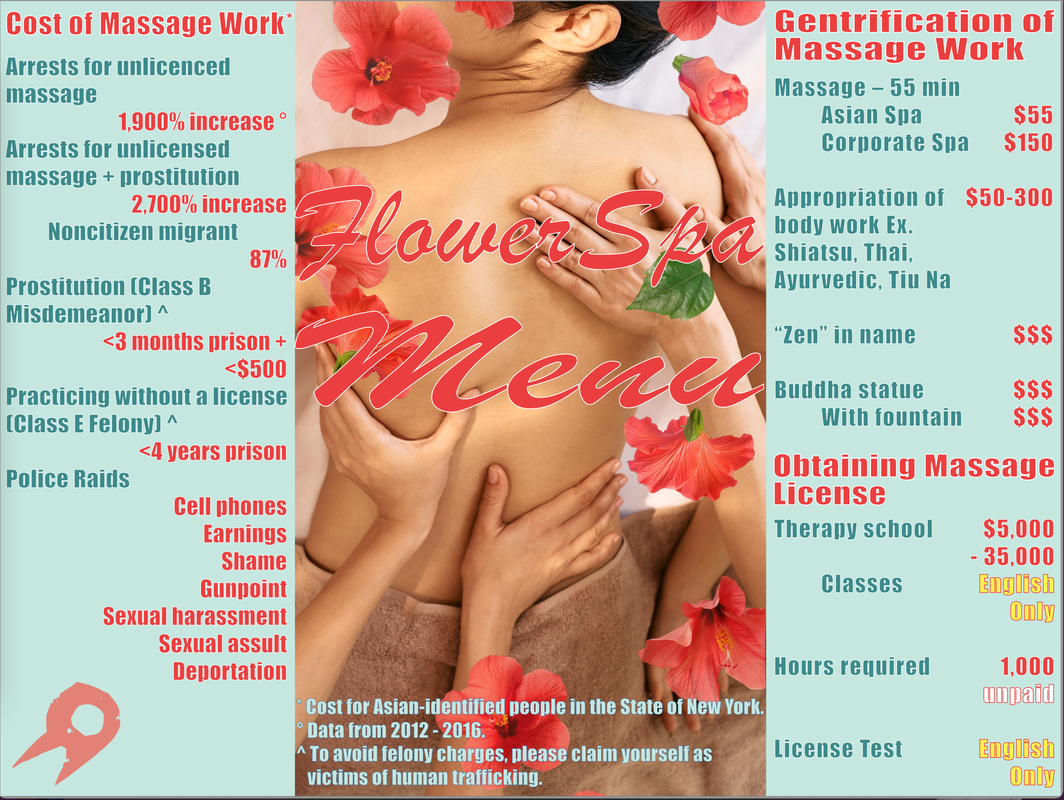|
I was honored to participate on this podcast, which is a new favorite listening series. I learned so much from scholar, Prof. Katie Gentile and hosts Ally Merchant & Romy Reading. And wow, their editing team make me sound so concise...
We talk about community care, Red Canary Song, Mercy Mistress, Fetus Fetish and Reproductive Rights, and much more. Other stellar episodes include conversations with Ken Corbett, psychoanalyst and author, and Maggie Nelson; Dr. Jules Gill-Peterson, author and distinguished professor of transgender history and history of sexuality, and Dr. Avgi Saketopoulou, esteemed psychoanalyst and author; internationally renowned choreographer, Bill T. Jones, and esteemed psychoanalyst, Professor of English and Latino and Caribbean Studies, and Dean of Humanities at Rutgers University, Dr. Michelle Stephens...and so many more that I'm making my way through on my long drives to and from NYC. Listening & learning...
0 Comments
Flower Spa Menu Sign created by Yin Q, Graphics by Audrey Tseng Fischer An LED sign reading “SPA” in a second-floor window, a decal with an image of a woman in a state of deep relaxation covering a storefront window: the massage parlor storefronts along New York City streets are an invitation to wellbeing . . . and suspicion. Neighbors fearful of potential prostitution raise the alarm and move to displace businesses, whether by the brute force of a police raid or a targeted Department of Buildings inspection. But inside, the massage parlor is a place of physical and emotional care, whether that is affordable body work or sex work for aching clients. Buoyed by the efforts of Red Canary Song, a mutual aid network of massage workers, sex workers, and activists, the spa is also a space of mutual support for migrants working hard to make a life in New York City. Combatting the marginalization and criminalization of the Asian women who predominantly work there, RCS’s activism, film, and installations (most recently at Storefront for Art and Architecture) are bringing people inside the storefront to show massage work in a new light. Diana Budds pulls back the curtain.
“FLY IN POWER” GIVES VOICE TO ASIAN MIGRANT MASSAGE WORKERS
by Kathy Ou Co-directed by Yin Q and Yoon Grace Ra, Fly In Power (2023) is the feature-length follow-up to a short film of the same title, which Q spearheaded after the death of Yang Song and which was released on YouTube in 2019. In the feature-length film, we see the filmmakers develop their aesthetics of collectivity, for example, by incorporating crowdsourced images and outsourced phone footage as alternative perspectives to one scene. We also see the added perspectives of the massage parlor workers themselves. One of the main characters, Charlotte, is a Korean massage worker, who tells about her upbringing in a big Korean family that prioritized educational and developmental opportunities for boys while the girls learned to care for the boys’ needs. Initially skeptical when Q—the film’s co-director and leading member of Red Canary Song— first approached her, Charlotte recounts slowly opening up after seeing Q’s persistence and genuine care for her. Q treats her like a close friend even though they met not too long ago. Charlotte is now a core organizer of Red Canary Song’s outreach team. Khokhoi is another fascinating character. Hailing from the Philippines, Khokhoi holds the spirits of the film. She identifies herself as a body, plant, and cultural worker who has lived in occupied Lenape land (New York) for the past 10 years. Land acknowledgment has a significant presence in the film—Q powerfully declares early on in the film, “Our care evolution must include remembrance.” Indeed, from mourning Yang Song to Indigenous land to the victims of the Atlanta shootings, the film is a thoughtful meditation on loss in both public and private spaces. Throughout the film, we see abundant footage of foodmaking, massaging, and other acts of body contact, all filmed in close proximity that emphasizes the tenderness and dexterity of the women’s hands. As Q thanks Charlotte for the food and altars she made for the one year anniversary memorial of the Atlanta shooting, the film seeks to make visible the often hidden and unrecognized labor performed by women. It’s in scenes like these that we see the inevitability and sensuality of our physical existence. If we can agree that the bodily is essential, why should massage, sex, or body work be invalidated, discriminated against, or criminalized? Read Full Review HERE |
Categories
All
|



 RSS Feed
RSS Feed